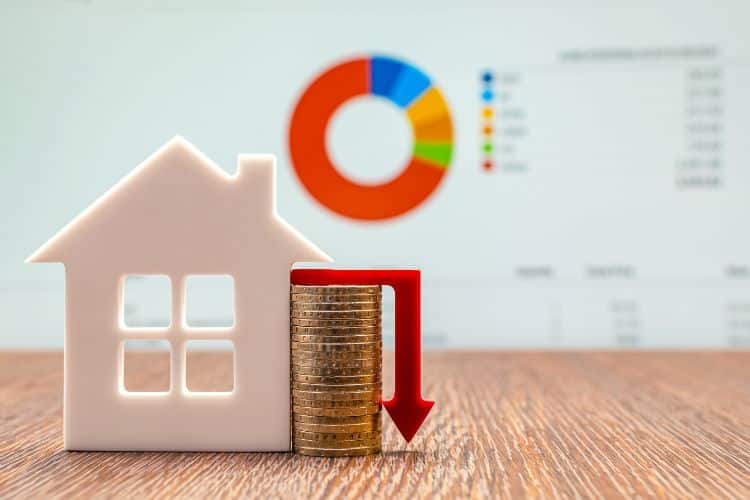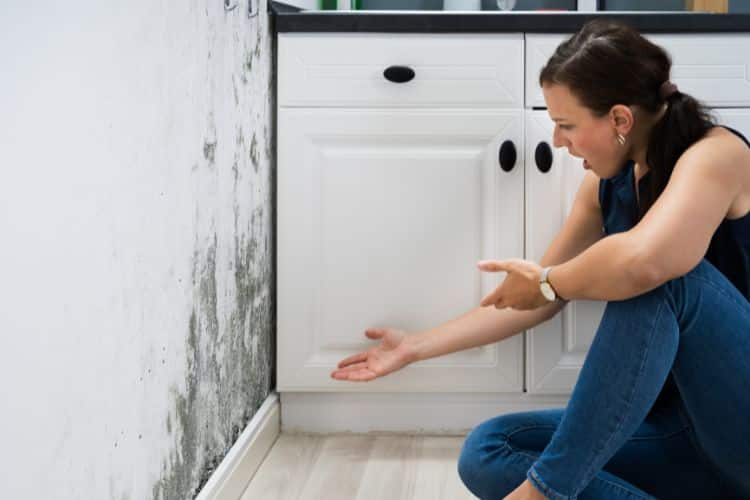Mold – it’s a word that can strike fear into the heart of any property owner. This minuscule, seemingly innocuous fungus has the potential to wreak havoc on structures, proving to be more than just an unsightly blot on your property. In this article, we delve into the world of mold, exploring the serious health risks it poses, the damage it can inflict on your property, and the significant impact it can have on your property’s value. More importantly, we will discuss the preventive measures you can take and the importance of remediation to safeguard your property and its occupants.
The Causes of Mold in Properties
Mold is a significant issue in properties that is often underestimated. The unsightly black spots that you may see on walls or ceilings may appear harmless, but they can spread quickly and cause serious health issues. Mold can affect those with allergies or respiratory problems and can even cause asthma attacks. Furthermore, mold in properties can decrease their value, making it harder to sell or rent them. The causes of mold can be numerous, ranging from leaks and poor ventilation to high humidity and moisture levels. To avoid these issues, it is essential to invest in mold inspection and mold removal services. Doing so can eliminate mold from your property and ensure a safer, healthier, and more valuable environment.

The Impact of Mold on Property Value
Mold is an unwelcome guest in any home, and unfortunately, its presence can have negative effects on property value. Mold growth can occur due to excessive moisture, and if left untreated, can spread rapidly and cause significant damage to a property. Apart from being a health hazard, mold damage could lead to costly repairs, and potential buyers might be discouraged from purchasing the property due to the prospective expense involved. Even if the mold issue has been resolved, the stigma that comes with a mold history lingers and may deter potential buyers. It is, therefore, essential to address mold promptly to avoid unfavorable repercussions on property value. As a property owner, identifying and dealing with mold concerns should be a priority.
| Impact on Property | Explanation | Remediation Cost | Value Effect |
|---|---|---|---|
| Structural Damage | Mold can weaken the structure of a property, leading to costly repairs and potential safety hazards. | Costs can be significant depending on the extent of damage and might include replacing walls, floors, and other structural elements. | This can significantly decrease the property’s value, especially if the damage is extensive. |
| Aesthetic Damage | Mold stains and damages the appearance of a property, which can deter potential buyers or renters. | Costs may vary depending on the extent of the damage and the materials affected. | This can lower the attractiveness and perceived value of the property. |
| Health Risks | The presence of mold can lead to a variety of health issues, which can make a property undesirable. | The cost of mold remediation can range widely, depending on the severity of the infestation. | A mold-infested property can experience a significant decrease in value due to the associated health risks. |
| Insurance and Liability | Mold growth can lead to higher insurance premiums and potential liability issues. | Costs associated with increased insurance premiums and potential lawsuits can be substantial. | These additional costs and potential legal issues can negatively impact the overall value of the property. |
The Cost of Mold Remediation
Mold remediation is a crucial step in maintaining the structural integrity of properties and ensuring a healthy living environment for occupants. While the cost of mold remediation may seem daunting, the cost of inaction can be even greater. If left untreated, mold can spread rapidly and cause damage to the property’s foundation, wood, and drywall. In addition, the presence of mold can significantly decrease the property’s value. While the exact cost of mold remediation varies depending on the severity of the mold and the size of the property, the investment in fixing the issue is well worth it in the long run. Ignoring the problem can lead to costly repairs and a decrease in property value. It is important to address mold issues as soon as they are discovered to prevent further damage and maintain the value of the property.
Prevention and Remediation: How to Protect Your Property’s Value
As a property owner, it is vital to understand the economic impact that mold can have if it is left untreated. In addition to the health concerns that untreated mold can bring, mold growth can cause significant property damage, ultimately reducing the value of the property. The good news is that there are preventive measures that property owners can take to minimize the risk of mold growth, such as addressing any water damage or leaks quickly. Additionally, prompt remediation is crucial in the event that mold is detected, as this can minimize damage and prevent further spread. In short, taking action to prevent and address mold growth can help protect your property’s value and ensure that it remains a safe and healthy place for occupants.
Conclusion
In conclusion, mold is more than just a basic household nuisance; it poses serious health risks and can significantly impact the value of a property. Quick action, immediate remediation, and a proactive stance against potential causes of mold, like water leaks, are essential in preserving not only the structural integrity of a property but also its market value. Homeowners should be vigilant and proactive in preventing mold growth, thereby safeguarding not just their investment, but also the health and well-being of the property’s occupants.




